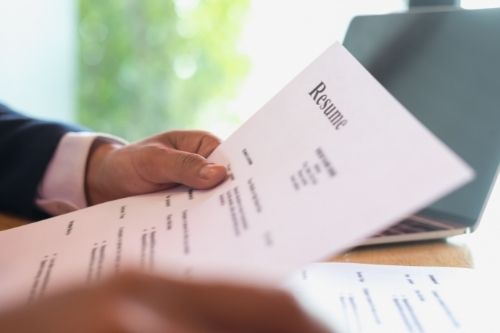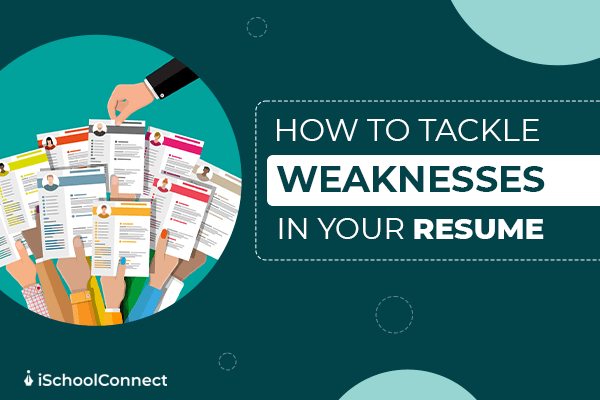Table of Contents
An employer will ask you several questions during an interview to discover more about your personality, experience, and professional history. They frequently ask questions to determine the strengths and weaknesses that you’ve added to your resume. Although the latter question may be difficult to answer, it is an opportunity for you to mention areas where you can contribute and those that need more training. Read the blog to know how you put forth your strengths and weaknesses in a resume tactfully.
Why do employers ask about strengths and weaknesses?
The question about strengths and weaknesses is usually brought up to obtain a whole picture of you as a candidate.
How you react will also reveal to the interviewer how well you know yourself and whether you are the perfect fit for the job. It also showcases to the employer that you are well aware of your weaknesses and prepared to work hard to develop them.
Highlighting your qualities can be a great asset, especially when you are changing verticals to a completely new line of work.
How to mention your strengths in a resume

Despite being a positive quality, strengths can simply not be identified outright. Here are some examples of how you can highlight your strengths.
- It is easy for me to become acquainted with new technology. I enjoy learning more about cutting-edge technology and everything there is to know about its applications. I believe it is crucial to be well versed with technology as it is inevitable to live without its applications in the current age. I can apply this strength of mine to the technical operations of the organization.
- I’ve always loved to work in teams, and I consider collaboration to be one of my strengths. I was able to motivate and collaborate with a group of people I previously supervised.
- Despite not majorly being from a financial background, I am great with numbers. I like finding new investment opportunities for my customers and aiding them in making financial decisions. It gives me great pleasure to learn about my customers’ requirements and develop solutions to help them in achieving their financial goals.
How to mention our weaknesses in a resume
- I tend to be harsh on myself while striving for perfection. Even if my work is well appreciated, I end up feeling that my input wasn’t as valuable as it should be. This frequently leads to exhaustion
- Keeping up with new technologies has been challenging for me. For the last several years, technology has been continually evolving. This makes it even more necessary for me to keep up with the pace to advance as a professional. Especially because it takes time for me to acquire technical knowledge, I’ve decided to commit more time to learn more about it and hone my skills.
- In both my personal and professional lives, I end up not getting into many details to avoid conflicts wherever possible. This turned out to be a major issue, when I became a manager, as it is important to be straightforward just as it is important to avoid conflict. Telling people what they need to hear rather than what they want to hear is one of the most important parts of managing people. This is a quality that I wish to develop.
How to mention your weaknesses in a positive light?

No one is flawless, hence being boastful of all your good qualities might not be the ideal way to position yourself in an interview. If you simply mention that you do not have a weakness, the interviewer will probably dismiss you as someone who lacks self-awareness, is overconfident, or is unable to recognize and learn from their mistakes.
It is important to remember that interviewers are aware of stock replies. This makes it all the more important to keep your responses authentic.
Once you’ve identified your weakness, the next step should be to portray it in a positive light. Here’s how you can do that –
- Avoid using negative adjectives like failure or incompetence, and instead, focus on improving the weak areas.
- Discuss how you have been successful in turning your weakness into a strength.
- Demonstrate how you have identified improvement opportunities.
What we have to say
There’s a strength behind every weakness, and your resume needs to showcase that while being interviewed.
- How you try to overcome your weaknesses, makes you a strong candidate.
- Learning from those who excel in articulating their strengths and weaknesses can prove to be helpful. Highlighting these qualities properly can help you to be a better team member and develop positive qualities.
- Responses on these lines can help you present your weaknesses in a positive light.
Liked the blog? Comment below and share your thoughts with us!
Liked this blog? Read Resume format for freshers | Things you need to know!
FAQ’s
Q1. How do you write your strengths and weaknesses in a resume?
Answer – Keep the job description in mind and consider the abilities you possess that meet the requirements of the organization. Try to back up your strengths with your experience or training when mentioning them. Your flaws should be open and honest, but not to the cost of your chances.
Q2. How do you know your strengths at a job?
Answer – You can know your strengths in the following ways –
- Listen to feedback
- Discover your personality
- Look for patterns
- Keep an open mind
Q3. Is overthinking a weakness?
Answer – Overthinking can be considered both a strength and a weakness.






